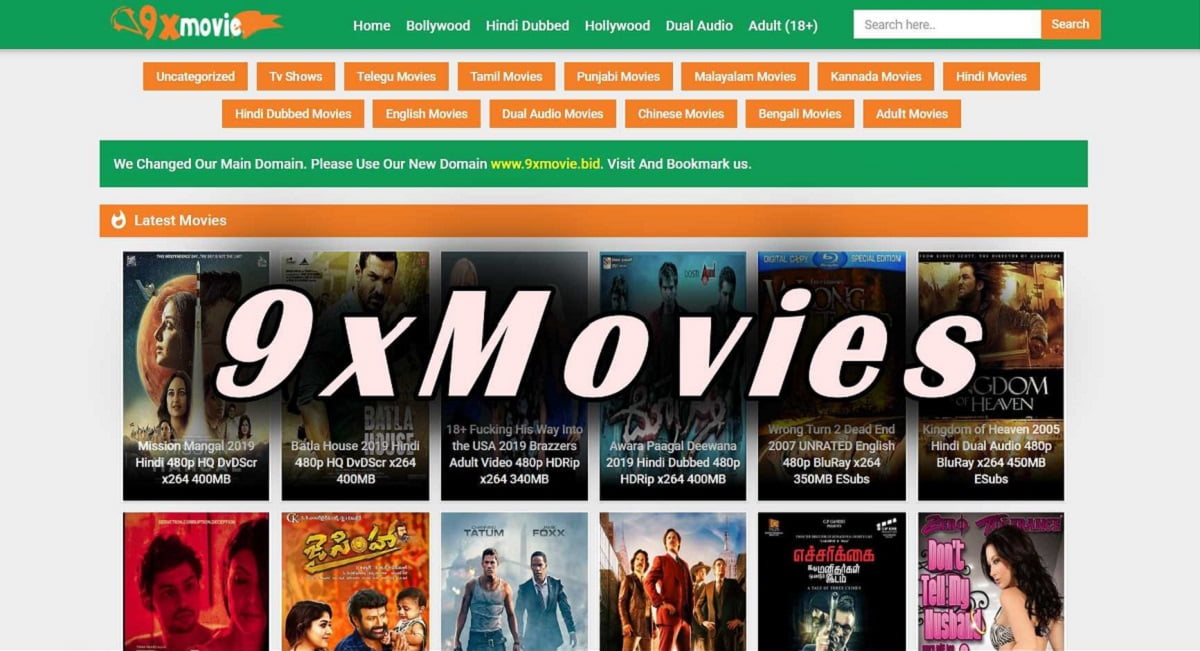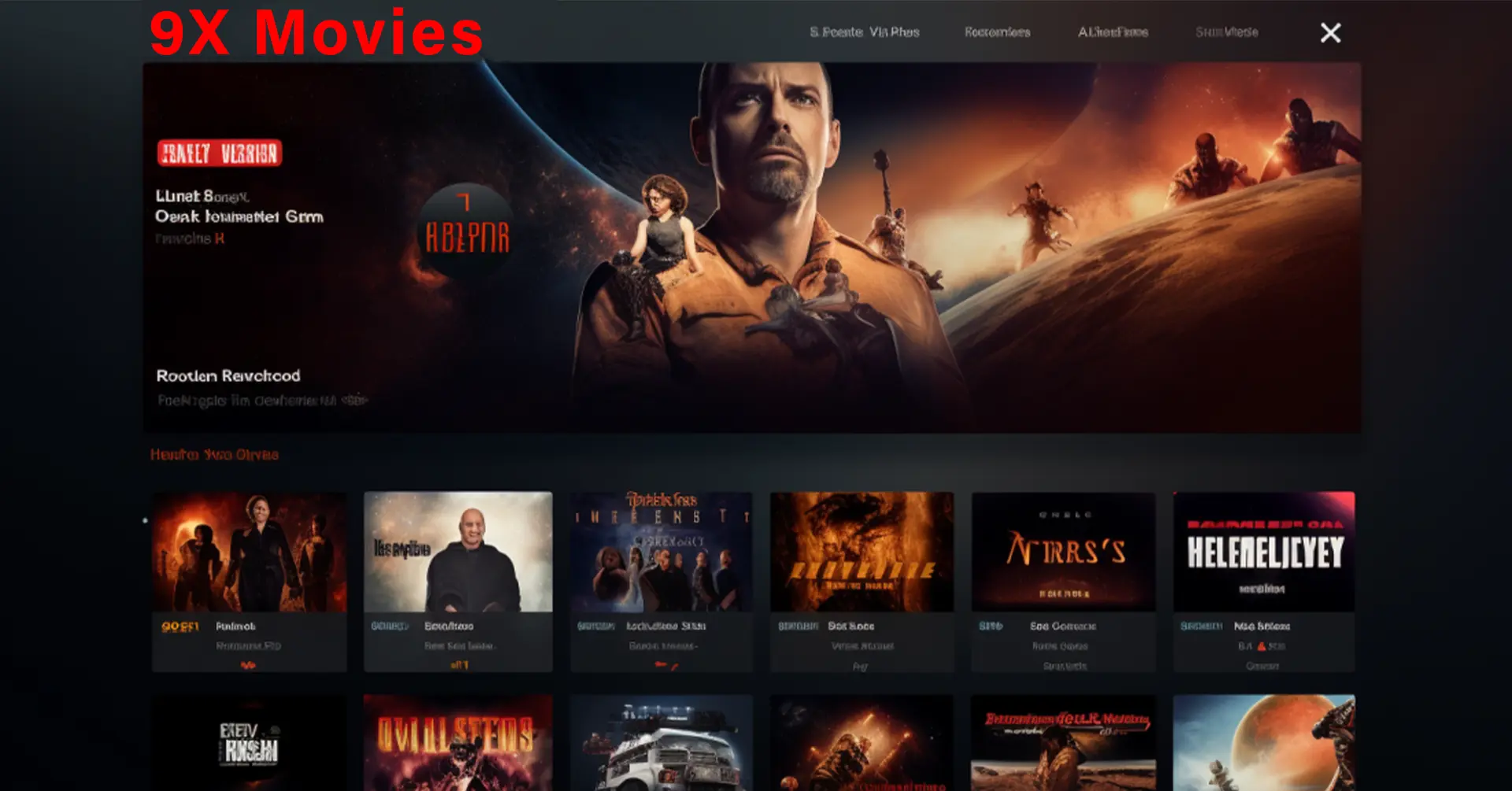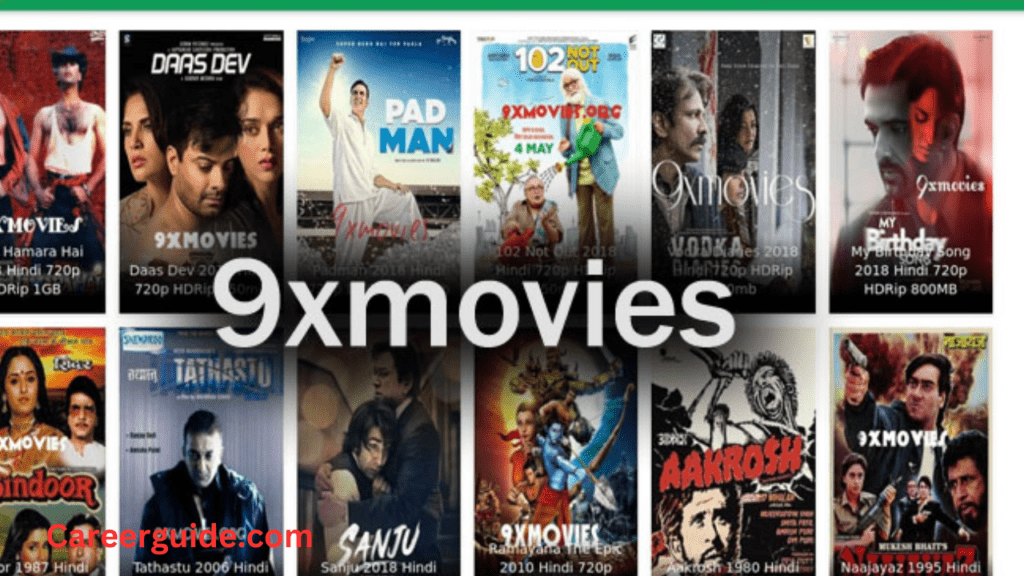9xMovies & Movie Piracy: Risks, Alternatives & More!
Is the allure of free movies and TV shows too good to resist? The proliferation of platforms like 9xmovies, offering a seemingly endless library of copyrighted content without a price tag, has ignited a global debate about digital piracy and its impact on the entertainment industry.
The digital age has revolutionized how we consume entertainment. Streaming services such as Netflix, iFlix, and Hooq, alongside others, have become the dominant channels for accessing movies and television series. Justwatch, for instance, aggregates content from numerous streaming providers, simplifying the search for desired titles. Services like Movies Anywhere, supported by major studios including Disney, Fox, Sony, Universal, and Warner Bros., further enhance convenience by allowing users to consolidate their digital movie libraries from various platforms like Apple iTunes, Amazon Prime Video, Fandango at Home, Xfinity, Google Play/YouTube, Microsoft Movies & TV, Verizon Fios TV, and DirecTV. However, despite the widespread availability and accessibility of legal streaming options, piracy websites like 9xmovies continue to thrive.
| Category | Information |
|---|---|
| Website Name | 9xmovies (and associated domains like 9xmovies biz, 9xmovies win, 9xmovies press) |
| Type | Piracy website offering free access to movies and TV shows. |
| Content | Tamil, Telugu, Kannada, Hindi, and dubbed movies. Wide range of genres and categories. |
| Operation | Leaks movies and TV shows, allowing users to download and stream copyrighted material for free. Operates as an unauthorized streaming platform. |
| Legal Status | Illegal. Infringes on copyright laws. |
| Risks | Exposes users to potential malware, viruses, and legal repercussions. |
| Alternatives | Netflix, Amazon Prime Video, Disney+, Hulu, HBO Max, and other legitimate streaming services. |
| Related Sites | Jio Rockers, Tamil Rockers (other piracy websites). |
| Additional Notes | The site often changes domains to evade detection and takedown efforts. |
| Reference | Wikipedia - Copyright Infringement |
9xmovies, along with its various iterations such as 9xmovies biz, 9xmovies win, and 9xmovies press, has carved a niche as a go-to destination for individuals seeking free access to a vast trove of cinematic content. These platforms operate by providing unauthorized copies of movies and TV shows, often in high-definition quality, allowing users to download or stream content directly without paying subscription fees or purchasing individual titles. The appeal is undeniable: a readily available library spanning genres, languages (including Tamil, Telugu, Kannada, Hindi, and dubbed versions), and release dates, all accessible with a few clicks.
- Unveiling The World Of Filmy Fly Xyz Your Ultimate Movie Hub
- Ms Sethi Onlyfans The Rise Of An Influencer In The Digital Age
However, the convenience and cost savings come at a significant price. 9xmovies functions as a piracy website, meaning it illegally distributes copyrighted material. This practice poses a serious threat to the entertainment industry, impacting revenue streams for studios, production companies, actors, and countless other professionals involved in creating the content we enjoy. The availability of free, pirated content undermines the financial viability of legitimate streaming services and discourages investment in future productions. Furthermore, accessing 9xmovies carries inherent risks for users. These websites often serve as breeding grounds for malware and viruses, potentially compromising devices and personal information. Users may also face legal repercussions for downloading or streaming copyrighted material illegally.
The rise of piracy websites like 9xmovies has triggered a heated debate about the ethics and legality of online content consumption. While proponents of these platforms argue for greater accessibility and affordability of entertainment, critics emphasize the importance of respecting intellectual property rights and supporting the creators who bring stories to life. The film industry, in particular, has been vocal about the detrimental effects of piracy, citing significant revenue losses and a dampening effect on creativity. The debate also encompasses broader issues of digital rights management, copyright law, and the role of internet service providers in combating online piracy.
Finding where to watch movies online legally is becoming increasingly easier. Sites like Justwatch are dedicated to aggregating information on where to stream movies, showing options from Netflix to other providers. However, the temptation to access content for free on sites like 9xmovies persists. Staying updated on Bollywood film release dates, trailers, teasers, and reviews can be done through legitimate sources like Filmibeat, providing a legal way to engage with the film industry.
- Bollywood Movies 2025 Your Ultimate Guide To Mp4 Downloads And Filmywap
- Filmy4wap Xyz Com 2024 Your Ultimate Guide To Streaming Movies Online
The impact of piracy on the entertainment industry is multifaceted. It directly reduces revenue, leading to decreased investment in new projects. It can also affect the quality of content, as studios may be less willing to take risks on innovative or niche productions if they fear widespread piracy. Furthermore, piracy creates an uneven playing field, making it difficult for legitimate streaming services and content creators to compete. The long-term consequences of unchecked piracy could include a decline in the quality and diversity of entertainment options available to consumers.
Protecting yourself online is crucial in today's digital landscape. This includes using strong passwords, being cautious about clicking on suspicious links, and installing reputable antivirus software. It also means being aware of the risks associated with accessing illegal websites like 9xmovies and understanding the legal consequences of downloading or streaming copyrighted material without authorization. By prioritizing online safety and respecting intellectual property rights, individuals can contribute to a more sustainable and ethical digital environment.
The narrative sometimes shifts to stories of resilience and unexpected journeys. Take, for instance, the tale of Li Fong, a kung fu prodigy uprooted from his Beijing home after a family tragedy and forced to navigate a new life in New York City. Such stories remind us of the power of human spirit and the importance of supporting creative endeavors through legitimate channels.
The availability of alternatives like Movies Anywhere, which streams movies from Disney, Fox, Sony, Universal, and Warner Bros., offers a convenient and legal way to watch films. By connecting digital accounts from Apple iTunes, Amazon Prime Video, Fandango at Home, Xfinity, Google Play/YouTube, Microsoft Movies & TV, Verizon Fios TV, and DirecTV, users can consolidate their digital libraries and access their favorite movies from various devices. These platforms provide a user-friendly experience, ensuring that consumers can enjoy entertainment without resorting to illegal piracy websites.
The debate surrounding 9xmovies and similar platforms is complex, involving legal, ethical, and economic considerations. While the allure of free content is undeniable, the long-term consequences of piracy for the entertainment industry and individual users are significant. By understanding the risks and exploring legal alternatives, consumers can make informed choices that support creativity, protect their online security, and contribute to a more sustainable digital ecosystem.
It's also worth noting the various forms these piracy sites take. We find mention of 9xmovies biz, 9xmovies win, and 9x movies press, each seemingly offering the same illicit services. These sites feature categories like Telugu, Tamil, and dubbed movies, appealing to a broad audience seeking free access to entertainment. Similar illegal sites like Jio Rockers and Tamil Rockers torrent websites also provide newly released movies in HD quality for download and viewing, further exacerbating the piracy problem.
In conclusion, while the temptation of free movies and TV shows offered by platforms like 9xmovies is strong, it's crucial to weigh the risks and consider the impact on the entertainment industry. By exploring legal streaming options, prioritizing online safety, and respecting intellectual property rights, consumers can contribute to a more sustainable and ethical digital landscape. The future of entertainment depends on it.
The fight against piracy is an ongoing battle. The constant emergence of new piracy websites and the evolving tactics used to evade detection require a multi-pronged approach involving legal action, technological solutions, and public awareness campaigns. Education is key to informing consumers about the risks associated with accessing illegal content and the importance of supporting legitimate streaming services and content creators. By working together, industry stakeholders, governments, and individuals can create a more sustainable and equitable digital ecosystem that fosters creativity and protects intellectual property rights.
One of the key challenges in combating piracy is the global nature of the internet. Piracy websites often operate from countries with weak copyright enforcement laws, making it difficult to take legal action against them. International cooperation is essential to address this issue, including the harmonization of copyright laws and the sharing of information and resources among law enforcement agencies. Furthermore, technological solutions such as watermarking and content recognition technologies can help to identify and track pirated content, enabling rights holders to take appropriate action. However, these measures must be balanced with the need to protect user privacy and avoid infringing on legitimate uses of the internet.
The economic impact of piracy extends beyond the entertainment industry. It also affects related sectors such as advertising, distribution, and retail. Piracy websites often generate revenue through advertising, diverting potential ad revenue from legitimate sources. Furthermore, the availability of free, pirated content can reduce demand for physical media and legitimate digital downloads, impacting sales in the retail sector. The overall economic cost of piracy is estimated to be billions of dollars annually, highlighting the need for effective measures to combat this problem.
The debate over piracy also raises questions about access to information and cultural diversity. Some argue that strict copyright laws can limit access to knowledge and culture, particularly for individuals in developing countries. They advocate for more flexible copyright regimes that allow for fair use and educational exceptions. However, others argue that strong copyright protection is essential to incentivize creativity and innovation, ensuring that creators are rewarded for their work. Finding a balance between these competing interests is a key challenge in the ongoing debate over copyright law and online piracy.
Ultimately, the fight against piracy requires a comprehensive and collaborative approach. It involves legal action, technological solutions, public awareness campaigns, and international cooperation. It also requires a willingness to address the underlying issues that drive piracy, such as the high cost of legitimate content and the lack of access to entertainment in some regions. By working together, industry stakeholders, governments, and individuals can create a more sustainable and equitable digital ecosystem that fosters creativity, protects intellectual property rights, and promotes access to information and culture for all.
The use of VPNs (Virtual Private Networks) to mask IP addresses and access geo-restricted content adds another layer of complexity to the piracy issue. While VPNs have legitimate uses, they can also be used to circumvent copyright restrictions and access illegal content. This raises questions about the responsibility of VPN providers in preventing piracy and the extent to which they should be held liable for the actions of their users.
The rise of social media has also contributed to the spread of piracy. Pirated content is often shared through social media platforms, making it easier for users to access illegal material. This poses a challenge for copyright holders, who must constantly monitor social media platforms for infringing content and take action to remove it. However, the sheer volume of content shared on social media makes this a difficult and time-consuming task.
The development of new technologies such as blockchain and artificial intelligence (AI) could offer potential solutions to the piracy problem. Blockchain technology could be used to create a decentralized system for tracking and managing digital rights, making it more difficult to pirate content. AI could be used to identify and remove infringing content from the internet automatically. However, these technologies are still in their early stages of development, and it remains to be seen how effective they will be in combating piracy.
The legal landscape surrounding online piracy is constantly evolving. Courts around the world are grappling with new legal issues raised by the internet, such as the liability of internet service providers and the extraterritorial application of copyright laws. The outcome of these legal battles will have a significant impact on the future of online piracy and the ability of copyright holders to protect their rights.
The consumer perspective on piracy is also important to consider. Some consumers view piracy as a victimless crime, arguing that they are not harming anyone by downloading or streaming content illegally. Others argue that piracy is a form of civil disobedience, protesting against what they see as unfair copyright laws or high prices for legitimate content. Understanding the motivations and attitudes of consumers towards piracy is essential for developing effective strategies to combat it.
The ethical considerations surrounding piracy are complex and multifaceted. While it is clear that piracy infringes on copyright laws and harms the entertainment industry, some argue that it is justified in certain circumstances, such as when access to information is limited or when prices for legitimate content are unaffordable. However, others argue that piracy is always wrong, regardless of the circumstances, because it violates the rights of creators and undermines the creative process.
The role of education in combating piracy cannot be overstated. By educating consumers about the risks and consequences of piracy, as well as the benefits of supporting legitimate content creators, we can help to create a more ethical and sustainable digital ecosystem. Education should target both young people and adults, and should be integrated into school curricula and public awareness campaigns.
The future of the entertainment industry depends on finding effective solutions to the piracy problem. By working together, industry stakeholders, governments, and individuals can create a more sustainable and equitable digital ecosystem that fosters creativity, protects intellectual property rights, and promotes access to information and culture for all. The challenge is significant, but the rewards are well worth the effort.
The constant cycle of cat and mouse between piracy sites and law enforcement is a testament to the difficulty of permanently shutting down these operations. As soon as one site is taken down, another often pops up in its place, highlighting the need for a more comprehensive and proactive approach to combating piracy.
The cultural impact of easily accessible pirated content is another area of concern. It can lead to a devaluation of creative work and a diminished appreciation for the time, effort, and resources that go into producing movies, TV shows, and other forms of entertainment. This can have a long-term negative effect on the quality and diversity of content available to consumers.
The legal ramifications for individuals caught downloading or distributing pirated content can range from fines and civil lawsuits to criminal charges in some cases. The severity of the penalties depends on the jurisdiction and the extent of the infringement, but it is important for consumers to be aware of the potential legal consequences of their actions.
The technological countermeasures used by copyright holders to protect their content, such as DRM (Digital Rights Management) technologies, are often controversial. While DRM can be effective in preventing piracy, it can also restrict legitimate uses of content and create inconvenience for consumers. Finding a balance between protecting copyright and providing a user-friendly experience is a key challenge in the development and implementation of DRM technologies.
The role of internet service providers (ISPs) in combating piracy is another area of debate. Some argue that ISPs should be required to block access to piracy websites and take other measures to prevent their networks from being used for infringing activities. However, others argue that ISPs should not be held liable for the actions of their users and that blocking access to websites could lead to censorship and restrictions on freedom of speech.
The economic models for content creation and distribution are also evolving in response to the challenges of piracy. Some creators are experimenting with new business models, such as crowdfunding and patronage, that allow them to directly support their work without relying on traditional distribution channels. These alternative models could offer a more sustainable and equitable way to fund creative endeavors in the digital age.
The psychological factors that contribute to piracy are also worth exploring. Some individuals may engage in piracy because they feel entitled to free content or because they believe that copyright laws are unfair. Others may simply be unaware of the legal and ethical implications of their actions. Understanding these psychological factors can help to inform the development of more effective anti-piracy campaigns.
The long-term consequences of widespread piracy for the creative industries are potentially devastating. If creators are not adequately compensated for their work, they may be less likely to invest in new projects, leading to a decline in the quality and diversity of content available to consumers. This could have a chilling effect on creativity and innovation, ultimately harming society as a whole.
The need for a global solution to the piracy problem is becoming increasingly urgent. As the internet transcends national borders, it is essential that countries work together to harmonize copyright laws and coordinate enforcement efforts. This will require a commitment to international cooperation and a willingness to address the underlying issues that drive piracy.
The debate over 9xmovies and similar platforms is a microcosm of the larger debate over copyright, intellectual property, and the future of the digital economy. Finding a balance between protecting the rights of creators and ensuring access to information and culture is a key challenge for policymakers, industry stakeholders, and individuals alike. The solutions we develop will shape the future of creativity and innovation in the digital age.
- Filmy4flycom Your Ultimate Guide To Streaming Movies And Tv Shows
- Mothers Warmth Chapter 1 Embracing The Love That Defines Us

9xmovies Your Ultimate Guide To Online Movie Streaming

9xmovies biz MP4 Movie Download Free

9xmovies biz CareerGuide